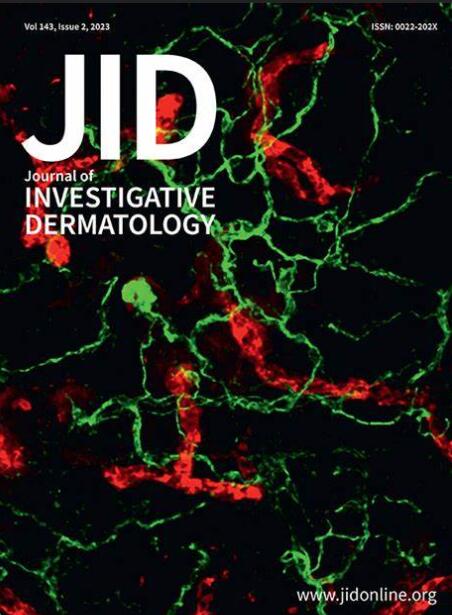Deciphering Depigmentation: Mouse Models for Vitiligo Research
IF 5.7
2区 医学
Q1 DERMATOLOGY
引用次数: 0
Abstract
Vitiligo is an autoimmune skin disease characterized by melanocyte loss and skin depigmentation. Although significant advances have been made in understanding the pathogenesis of vitiligo, the development of novel treatments has depended and will likely continue to depend on preclinical animal model research. This review provides a comprehensive overview of established mouse models for vitiligo, categorizing them on the basis of their mechanisms of melanocyte loss, immune involvement, and relevance to human disease. Finally, we explore emerging areas in vitiligo research, emphasizing the need for refined models that better replicate human disease heterogeneity and therapeutic responses. By critically evaluating available mouse models, this review aims to guide researchers in selecting appropriate models to advance vitiligo research and treatment development.
解读色素沉着:白癜风研究的小鼠模型。
白癜风是一种自身免疫性皮肤病,以黑素细胞丧失和皮肤色素沉着为特征。尽管在了解白癜风的发病机制方面取得了重大进展,但新的治疗方法的发展仍然依赖于临床前动物模型的研究。本文综述了已建立的白癜风小鼠模型的全面概述,并根据其黑素细胞丢失、免疫参与和与人类疾病的相关性的机制对它们进行了分类。最后,我们探讨了白癜风研究的新兴领域,强调需要改进模型,更好地复制人类疾病的异质性和治疗反应。通过对现有小鼠模型的批判性评价,本综述旨在指导研究人员选择合适的模型来推进白癜风的研究和治疗发展。
本文章由计算机程序翻译,如有差异,请以英文原文为准。
求助全文
约1分钟内获得全文
求助全文
来源期刊
CiteScore
8.70
自引率
4.60%
发文量
1610
审稿时长
2 months
期刊介绍:
Journal of Investigative Dermatology (JID) publishes reports describing original research on all aspects of cutaneous biology and skin disease. Topics include biochemistry, biophysics, carcinogenesis, cell regulation, clinical research, development, embryology, epidemiology and other population-based research, extracellular matrix, genetics, immunology, melanocyte biology, microbiology, molecular and cell biology, pathology, percutaneous absorption, pharmacology, photobiology, physiology, skin structure, and wound healing

 求助内容:
求助内容: 应助结果提醒方式:
应助结果提醒方式:


